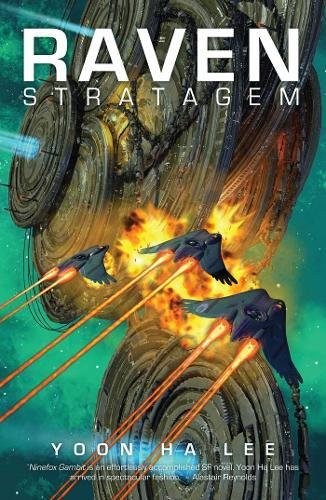(Disclaimer: Jae Waller has been an internet acquaintance of mine since before I began to read this series.)
This was a great book - I may even have liked it more than Flight, overall - but before I get into any of that, I need to preface this with a massive warning. If you're seriously depressed or vulnerable to depression or self-destructive tendencies, read this book only with extreme caution. Wait until you're in a halfway stable place emotionally and have coping skills available. In fact, if you've a severe case, you might want to wait until the next book comes out so you can continue straight on with it. Details in as general of terms as I can manage:
In the latter quarter or so of the book, Kateiko falls into a severe depression that's described as spiritual/magical in origin but is probably compounded by the circumstances of her life. Her depression is well-written, pervasive, and immersive. She isolates herself, pushes away loved ones - whose love she no longer feels, nor does she feel her own love for them - lashes out at others, turns to alcoholism as a coping mechanism, and generally has the sort of depression-based positive feedback loop thing going on that's usually described as a downwards spiral: her depression causes behaviour that actively serves to make her environment worse and remove healthy support systems, which in turn worsens her depression and lowers the chance of eventual recovery, &c. Kateiko is an immersive first-person narrator, and depression threads itself through every part of her voice. If you're at all vulnerable to this, there's a very good chance you'll feel it with her.
This is worsened, also, by two things. One: the only thing which ends up helping at all, very late in the book, is the use of blood. This is also described as being for magical/spiritual reasons - blood is sacred to the Aikoto and holds the memories of one's ancestors - but it rings very true to the (temporary) relief brought by cutting. Which means: if you're a cutter in recovery or otherwise, the danger that it'll awaken the urge is extremely real. I cannot recommend strongly enough that you have alternative, healthier coping mechanisms directly available as you read the last several chapters.
Two: While the thing with the blood gets her out of the absolute worst of it, perhaps temporarily, the magical/spiritual depression itself is not actually cured by the end of the book - in fact, it's the inciting motivation leading into the next in the series. It's for this reason that I recommend you wait for that next one if you're extremely vulnerable. While you can read on, there's hope; ending on that note is not exactly hopeful, despite Kateiko's own resolve to get it fixed.
All right, all that over with: I did love this book. All the things I liked about Flight are just as present: fluid prose, excellent characterisation, natural-feeling dialogue, incredible worldbuilding. Cultural diversity - even greater cultural diversity than in Flight, in fact, as we're introduced to two additional cultures - with each culture depicted with nuance and depth, and each character's culture influencing them but not defining them. I cannot stress enough the extent to which the cultural worldbuilding in this series is absolutely top-notch.
I should also mention that Kateiko has sex-related trauma stemming from Flight, and it's handled really well: respectful, realistic, complicated, and neither is the trauma downplayed nor is Kateiko stripped of her sexuality. It's beautifully done.
Even better, there's improvement over Flight in a couple of respects. We have explicit queer representation! Two major characters are explicitly bisexual, from opposite ends of the bi spectrum, which already puts it a notch above a great deal of bi rep I've seen which treats it as a toggle rather than a spectrum; a third character makes a bi joke which doesn't make it 100% clear whether he actually is or not, but does make it clear that even if he is not, he'd be fine with it if he was (and/or if people thought he was). Queer-friendliness is not the same thing as queer representation, but in a different way it's worth at least as much. Both at once is gold.
The treatment of disability is not perfect, but it's still an improvement over Flight, in which I noted that there were no disabled characters - even in the background - despite a large cast and a lot of background characters. Disability exists in Veil. Several characters, including some who are quite major, developed physical disabilities from battle wounds; plus points for wounds received in battle having realistic, long-lasting consequences. I was extremely excited to see what at first seemed to be a deaf background character! My excitement was tempered when more was revealed about her: she turned out to be a villain; also, her deafness was also a result of battle-related injury, meaning that disabilities not caused by battle are still effectively non-existent in this world. These things cancel each other out just enough that I'm not putting this down as Bad Disability Representation, but I'm not going to recommend the series so far on the strength of its disability rep, either.
Overall: I really liked it and am very much looking forwards to more in this series.
Selling points: cultural diversity; seriously excellent worldbuilding; a sex scene featuring clear and honest communication; bi rep; realistic depiction of trauma and gentle recovery from the same; likeable characters; serious handling of fantasy violence; excellent voice.
Warnings: extended, highly immersive depiction of depression; alcoholism; character death; one instance of "psychotic" as a slur.















